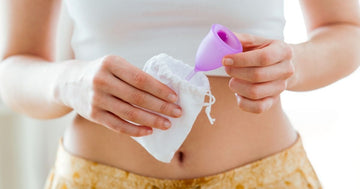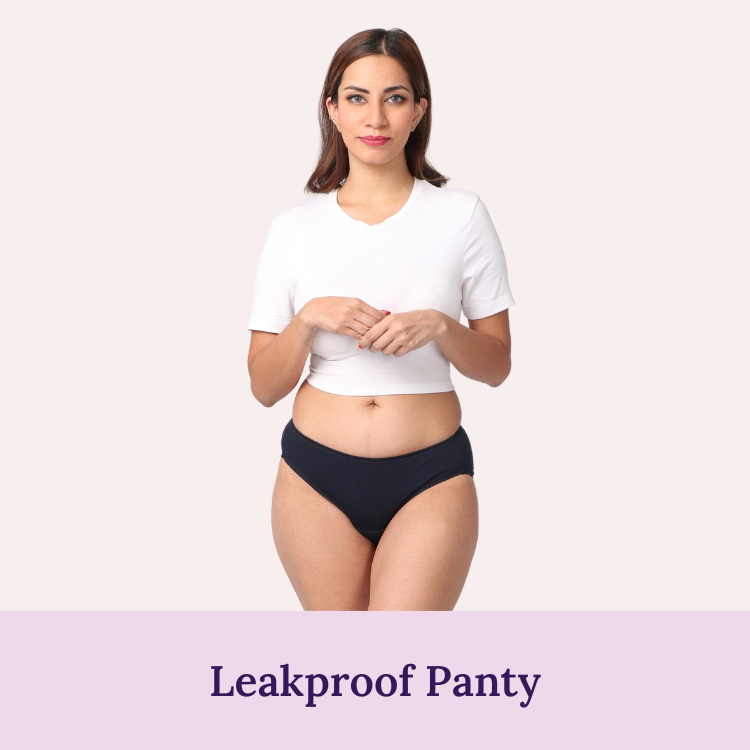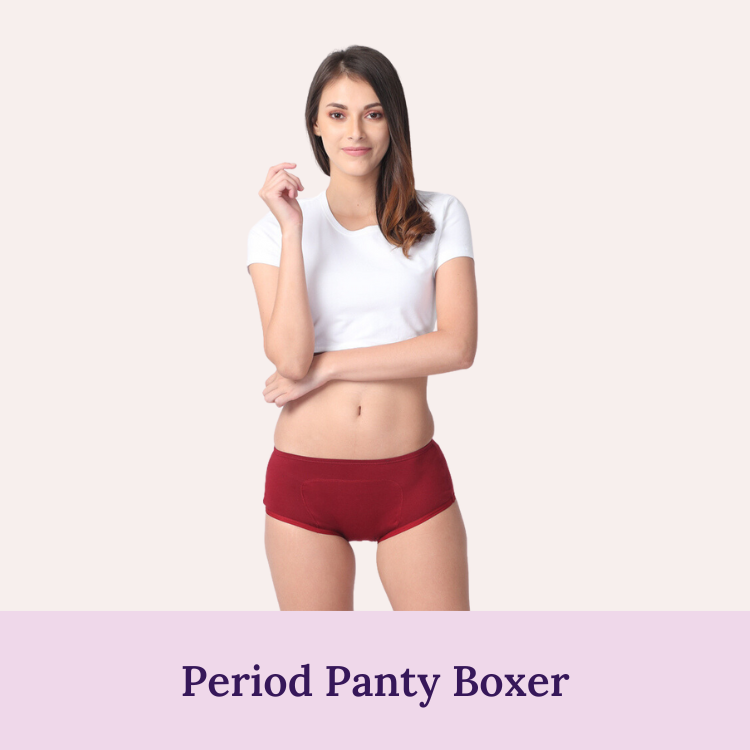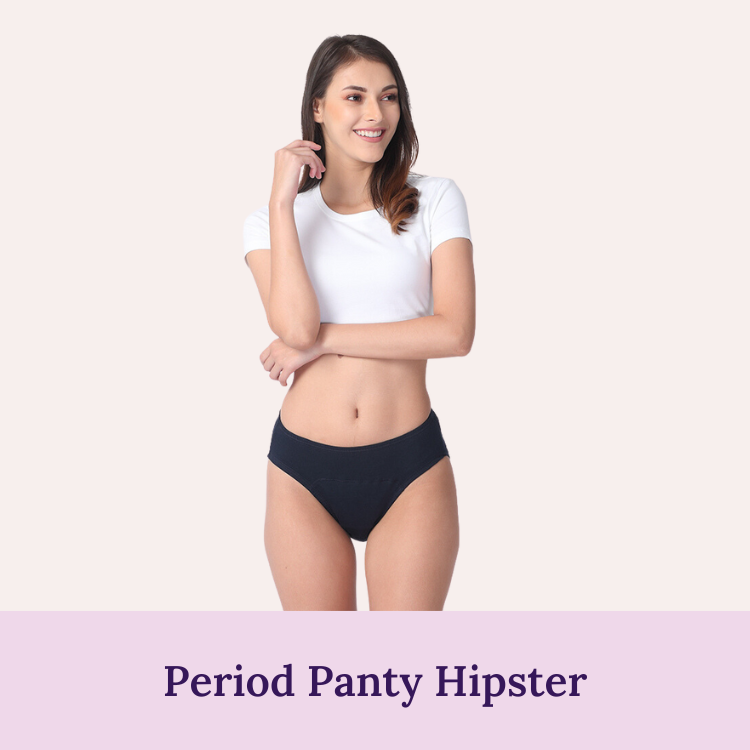How To Choose Menstrual Cup Size?
by Adira Editorial on Mar 03, 2022

Did you know that something called menstrual cups existed? The answer would probably be no. Though the menstruation hygiene market is estimated to be worth $700 million, menstrual cups are not very popular. Here is another surprising fact that these have been present since the 1930’s and are a patented product. A gang of midwives invented this device that has proven to be health souvenir in the long run. Let us have a detailed look at it via this guide to menstrual cups, then decide in or against its favour.
What Is A Menstrual Cup?
In simple words, a menstrual cup is a kind of feminine hygiene merchandise that needs to be inserted inside the vagina during periods. It is made from flexible materials like natural gum, silicon or thermoplastic elastomer (TPE). Not to mention, that the silicone cups will last you the longest. Again, you must take your allergies (like latex allergy) into consideration before you buy one.
Benefits Of Menstrual Cups
By this time, you must have got a fair understanding of what a menstrual cup is. However, what you may still need to know is why should you use it? There are many advantages of menstrual cups and we have jolted down a few of them for you, in this post. Feel free to read them.
- As mentioned you can wear these longer than a tampon or a pad
- These cups have the capacity to absorb more and is considered to be boon for women with heavy flow
- These cups do not have wings or strings that make them unpleasant especially for those that live an active lifestyle (for example jog, workout, swim or run)
- Plus these have nothing harmful like adhesives, BPA or fragrances
- This implies they are odor less
- These are shock free unlike tampons
- These do not trigger allergies
- Most importantly, you do not spend a fortune buying them like the disposable pads and tampons
- Overall, they are environmentally safe as they are reusable and a greener approach for a safer period
Also read: Is It Safe For Teens To Use Menstrual Cups?
How To Select Menstrual Cup Size?
It is recommended that women under 30 and those who have not given vaginal birth can settle for small-sized ones. On the other hand, women over 30 that have given vaginal birth can go for a larger one. We believe the best way to select one would be to measure your cervix. You can buy it following these rules (but you may need to insert your finger inside of you to measure it as well):
- If your cervix is hard to reach, then it is high and you may need a longer cup
- If your knuckles reach your cervix, then it is medium or average, then you must go for medium cups
- In case your fingers reach your cervix right away, then you have a low cervix and you may need shorter cups
- Again, if you work out and have a toned pelvic, then opt for a firmer cup
- If you have bladder issues or simply do not approve of firm ones, then go for the softer alternative
- Choose the stem of your choice like ball, hollow, ring, solid or flat
You can pair menstrual cups with Adira Period Panty Hipsters to make sure you never stain.
How Do You Clean Menstrual Cups?
This could easily pass as the biggest disadvantage of a menstrual cup as it needs a little bit of upkeep. Yes, you will have to sterilize it in between in periods and store it in a bag. You can simply boil water and add the cup, once it floats up and you know it has been sterilized. Nonetheless, we will advise you to read the user manual by your manufacturer thoroughly before you perform any cleaning ritual.
Side Effects Of Using Menstrual Cups
There are a few problems besides the maintenance part of using menstrual cups. We can tell you that they are:
- Menstrual cups may cause discomfort or pain during insertion or removal.
- There is a small risk of infection if the cup is not cleaned properly.
- The cup may leak if not positioned correctly.
- Cups can be difficult to insert or remove for some people, especially those with certain medical conditions.
- Cups may be unsuitable for people with a low cervix or a heavy flow.
- It may break the hymen of a virgin and this could be a problem in some cultures for sure
If you are considering menstrual cups for your daughter, we recommend she uses them at least after a year of her having a regular period. You may also buy her this fun book on puberty which will help her look at the whole growing-up process in a positive way.
Also read: Daughter's First Period: What To Expect?Conclusion:
Menstrual cups offer an eco-friendly, cost-effective, and safe alternative to traditional menstrual products.
While there may be some side effects or challenges associated with using menstrual cups, many users find them to be a convenient and comfortable option. As with any menstrual product, it's important to choose a cup that fits well and to follow proper hygiene and usage instructions.
With proper care and use, menstrual cups can be a great option for those looking to reduce their environmental impact and simplify their menstrual routine.
Final Verdict:
Now, you may be thinking if a menstrual cup could hurt while removing them. The answer is no, as unlike tampons, they do not get dried up. That said, we mean it will not make you uncomfortable while taking it off. Moreover, they can be worn for longer hours (like up to 12 hours) as well as overnight. With that, we would like to take your leave.
Hope, we have answered all your questions in this guide to menstrual cups.
Shop all Adira essentials including period panty hipsters for an extra 10% off using code "MENSTRUAL10"














